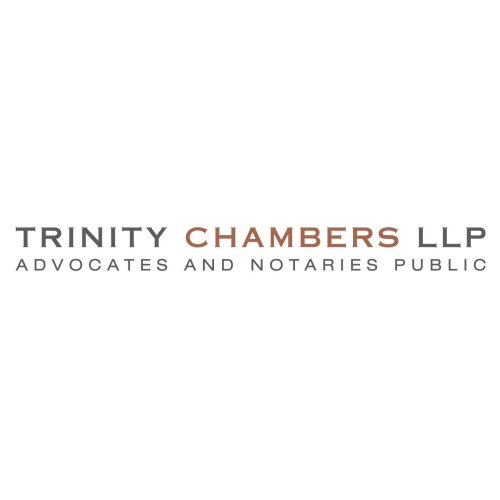Best Estate Planning Lawyers in Guernsey
Share your needs with us, get contacted by law firms.
Free. Takes 2 min.
Or refine your search by selecting a city:
List of the best lawyers in Guernsey
About Estate Planning Law in Guernsey
Estate planning in Guernsey involves structuring your affairs to ensure that your assets are distributed according to your wishes after your passing. This can include creating wills, trusts, and powers of attorney to protect your estate and minimize taxes.
Why You May Need a Lawyer
One may require legal assistance in estate planning to ensure that their wishes are clearly outlined and legally binding. A lawyer can help navigate complex laws, minimize tax liabilities, and protect assets from potential disputes.
Local Laws Overview
In Guernsey, estate planning laws are governed by the Trusts (Guernsey) Law, which allows for the creation of trusts to protect assets and regulate their distribution. The Probate (Resealing) Guernsey Law facilitates the recognition of foreign grants of probate in Guernsey.
Frequently Asked Questions
1. What is a will and why do I need one?
A will is a legal document that outlines how you want your assets to be distributed after your passing. It ensures that your wishes are followed and can prevent legal disputes among beneficiaries.
2. What is a trust and how can it benefit me?
A trust is a legal arrangement where a trustee holds assets on behalf of beneficiaries. It can provide protection from creditors, minimize tax liabilities, and ensure the efficient distribution of assets.
3. What is probate and when is it required?
Probate is a legal process where the court validates a will and appoints an executor to distribute the estate. It is required when there are assets solely in the deceased's name or if there are disputes among beneficiaries.
4. How can I minimize estate taxes in Guernsey?
To minimize estate taxes, you can utilize trusts, make gifts during your lifetime, and establish tax-efficient structures for your assets. Consulting with a lawyer can help you navigate the complexities of tax planning.
5. Can I create a power of attorney for estate planning purposes?
Yes, you can create a power of attorney to appoint someone to make financial or healthcare decisions on your behalf if you become incapacitated. This ensures that your affairs are managed as per your wishes.
6. What is the role of an executor in estate planning?
An executor is responsible for administering your estate according to the terms of your will. They gather assets, pay debts and taxes, and distribute the estate to beneficiaries as outlined in the will.
7. How often should I review my estate plan?
It is advisable to review your estate plan whenever there are significant life events, such as marriage, divorce, birth of children, or changes in financial circumstances. Regular reviews can ensure that your plan remains up-to-date and reflects your current wishes.
8. Can a lawyer help with estate planning for international assets?
Yes, a lawyer experienced in international estate planning can help you navigate the complexities of owning assets in different countries. They can ensure that your estate plan complies with local laws and minimizes tax liabilities across jurisdictions.
9. What are the advantages of creating a living will?
A living will, also known as an advance directive, outlines your healthcare preferences in case you are unable to communicate them yourself. It allows you to specify the medical treatments you do or do not want to receive, providing clarity for your loved ones and medical professionals.
10. How can I protect my assets for future generations?
To protect your assets for future generations, you can establish trusts, create a comprehensive estate plan, and engage in tax planning strategies. Consulting with a lawyer can help you implement strategies tailored to your specific goals and circumstances.
Additional Resources
For further information on estate planning in Guernsey, you can contact the Guernsey Registry or seek advice from the Guernsey Bar Association. These resources can provide guidelines and assistance in navigating the legal aspects of estate planning.
Next Steps
If you require legal assistance in estate planning in Guernsey, it is advisable to consult with a qualified lawyer who specializes in this area of law. They can help you create a customized estate plan tailored to your needs and ensure that your wishes are legally binding and protected.
Lawzana helps you find the best lawyers and law firms in Guernsey through a curated and pre-screened list of qualified legal professionals. Our platform offers rankings and detailed profiles of attorneys and law firms, allowing you to compare based on practice areas, including Estate Planning, experience, and client feedback.
Each profile includes a description of the firm's areas of practice, client reviews, team members and partners, year of establishment, spoken languages, office locations, contact information, social media presence, and any published articles or resources. Most firms on our platform speak English and are experienced in both local and international legal matters.
Get a quote from top-rated law firms in Guernsey — quickly, securely, and without unnecessary hassle.
Disclaimer:
The information provided on this page is for general informational purposes only and does not constitute legal advice. While we strive to ensure the accuracy and relevance of the content, legal information may change over time, and interpretations of the law can vary. You should always consult with a qualified legal professional for advice specific to your situation.
We disclaim all liability for actions taken or not taken based on the content of this page. If you believe any information is incorrect or outdated, please contact us, and we will review and update it where appropriate.
Browse estate planning law firms by city in Guernsey
Refine your search by selecting a city.










